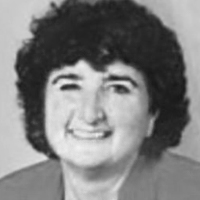Question
Does dysphagia lead to aspiration pneumonias?
Answer
I think we have to say, “Yes, BUT….” Yes, but it is more likely to result in illness when it is in the context of higher degree of disability, underlying lung disease, and/or nutritional compromise. To pull all of this research together, we can say that in order for an aspiration pneumonia to occur, three things have to happen.
Colonization of bacteria. First, there has to be some bacterial source. We are talking about an infection. There has to be bacteria coming from somewhere. Those folks with poor oral care or with dental decay are at higher risk here, certainly. So are those patients who are being tube fed, who are vent-dependent, or who have trachs because bacteria love dark, warm, wet places. That would include the mouth and also include tubes. There has to be some bacteria to start this process.
Aspiration risk. Secondly, the bacteria have to be aspirated. They have to get into the lung(s) in order to have a lung infection. Certainly those patients with dysphagia are at higher risk, but so are patients with reflux disease or patients who are being tube fed. NG-tubes, in particular, increase the likelihood of reflux and aspiration of that reflux. Again, there have to be some bacteria and they have to get into your lungs.
Host resistance. But those two things alone will not make you sick. You also have to be unable to clear the bacteria. Who are the folks who cannot perform good pulmonary clearance? The first pulmonary clearance mechanism is a cough, and therefore, silent aspirators are at higher risk.
The second pulmonary clearance mechanism is mucociliary clearance. So, folks with cilia damage are not going to be able to do good mucociliary clearance. That is why we see underlying lung disease showing up over and over again in the research as a risk factor. You are not going to be able to do good mucociliary clearance if your cilia do not work very well.
We also have to think about hydration. The cilia move in the lung fluid. The dehydrated patient has diminished lung fluid, and therefore, diminished cilia motility. This is not damage in the way that we see with cigarette smokers. Once we rehydrate, good movement of the cilia will return. But during that period of dehydration, our cilia do not move very well, and as a result we are not going to be able to do good mucociliary clearance.
Additionally, cellular clearance mechanisms are mediated by the immune system. That patient who is immune compromised or nutritionally compromised is going to have diminished ability to clear aspirated material.
In summary, you have to have some bacteria that get into the lungs that does not get cleared, and that is when you get sick.
Please refer to the SpeechPathology.com course, Aspiration Pneumonia: It's Not Just Aspiration, for more in-depth information on how to identify clients who are at higher risk for illness and address risk factors that can be modified in order to reduce the likelihood of aspiration-related illness.

